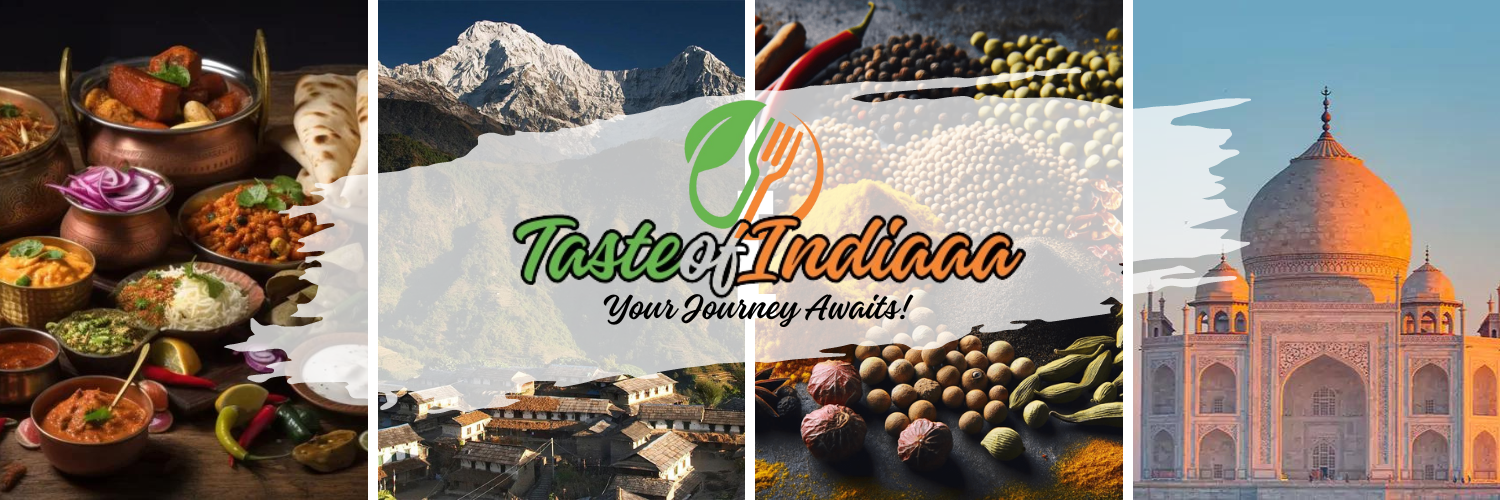In a world of various cuisines, Indian food stands out as a rich tapestry woven with spices, flavors, and a centuries-old cultural legacy. Indian cuisine is a captivating voyage for people looking for a gastronomic adventure that not only stimulates the taste senses but also begs the question, “Is Indian food healthy?” We delve into the nutritional components of Indian cuisine in this exploration, revealing the health benefits that make it a tasty and healthful choice for anyone looking to taste the flavors of the subcontinent.

The Spice of Life:
At the core of Indian cuisine is a profusion of spices that not only give depth and complexity to the meals but also provide numerous health advantages. Turmeric, a golden spice, is well-known for its anti-inflammatory qualities thanks to its main ingredient, curcumin. This spice, which is used in many Indian dishes, has been linked to many health advantages, including improved digestion and immunological function.
Cumin, coriander, cardamom, and cinnamon are just a handful of the spices used in Indian food, each with its own set of health benefits. These spices not only enhance the flavor of the food, but they also include antioxidants, which aid in the battle against free radicals and promote overall well-being.

Vegetarian Favorites:
The variety of vegetarian options in Indian food is one of its distinguishing features. With a large percentage of the population following a vegetarian or plant-based diet, Indian culinary traditions have mastered the skill of creating delicious and nutritionally balanced vegetarian foods. Lentils, legumes, and a variety of vegetables are staples in Indian cooking because they are high in protein, fiber, vitamins, and minerals.
Dal: A lentil-based dish that is both a comfort food and a nutritious powerhouse. Dal shows how Indian cuisine can be both filling and nourishing, as it is high in protein, fiber, and important nutrients. A vivid spectrum of nutrients is added to the plate by including a range of vegetables in recipes like baingan bharta (roasted eggplant) and bhindi masala (okra curry).

Balancing Act:
While the variety of rich and tasty meals in Indian cuisine may appear to be excessive, the trick is to strike a balance. Traditional Indian meals frequently contain a variety of ingredients, ensuring a well-balanced nutritional intake. Dal (lentils), sabzi (vegetables), chapati (whole wheat flatbread), rice, and yogurt are traditional dishes. This combination contains a good balance of carbohydrates, proteins, fats, and vitamins and minerals.
Furthermore, Ayurveda, an ancient Indian medical system, emphasizes the need to balance the six flavors – sweet, sour, salty, bitter, pungent, and astringent – in every meal. This holistic approach to diet is said to promote general health and well-being by promoting body harmony.

Mindful Eating:
Aside from nutrition, Indian cuisine places a great focus on mindful eating. Sharing meals with family and friends has a cultural importance that develops a sense of community and connection. Furthermore, the use of different spices not only improves the taste but also encourages a slower pace of eating, allowing the body to identify fullness signals and reducing overconsumption.
Culinary Caution:
While there are numerous health benefits to Indian cuisine, it is important to exercise caution, especially in today’s world of processed and restaurant-prepared foods. Some dishes, especially when consumed outside the home, maybe heavy in calories, saturated fats, and sodium. Choosing homemade or health-conscious restaurant options can help alleviate these anxieties.
Conclusion:
Indian food emerges as a nutritious and wholesome option for individuals seeking a healthy lifestyle in the grand tapestry of gastronomic delights. The bright rainbow of spices, the emphasis on vegetarian meals, and the practice of mindful eating all add to Indian cuisine’s general well-being. Balance and moderation, like with any culinary heritage, are essential in ensuring that the flavors of India benefit not just the palate but also the health of people who savor its delights. So, the next time you go on a gastronomic adventure, think about the vast and diverse world of Indian cuisine – a tapestry of flavor that nourishes both the body and the soul.
Read Also: The Top 7 Most Common North Indian Delicacies: A Flavorful Odyssey
Learn More about the vast Indian Foods here: TASTEOFINDIAAA…





